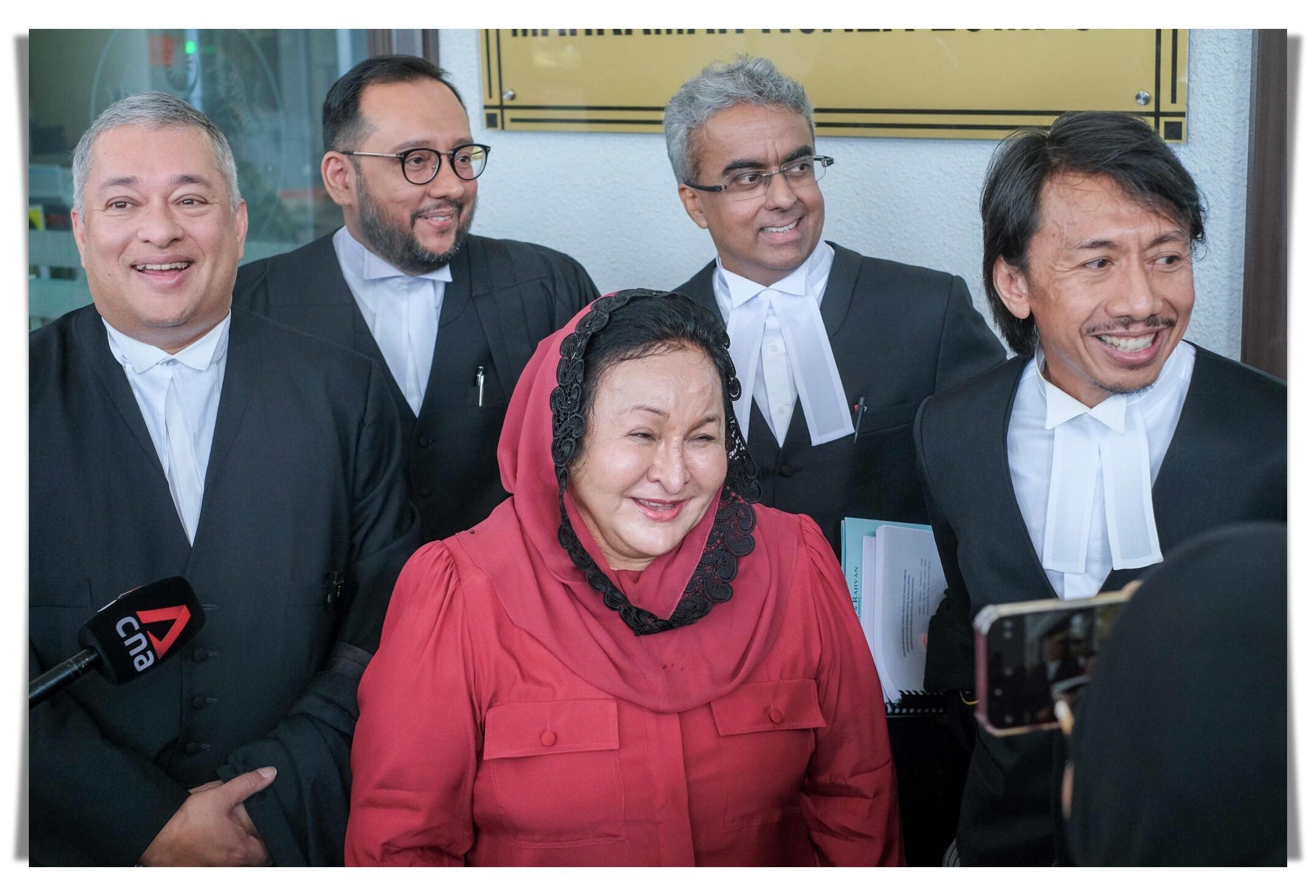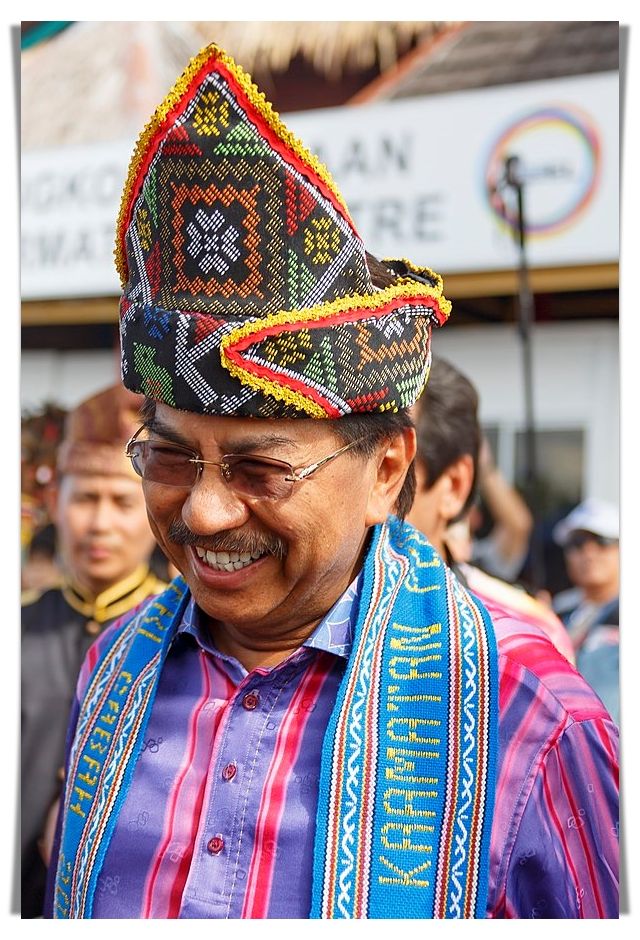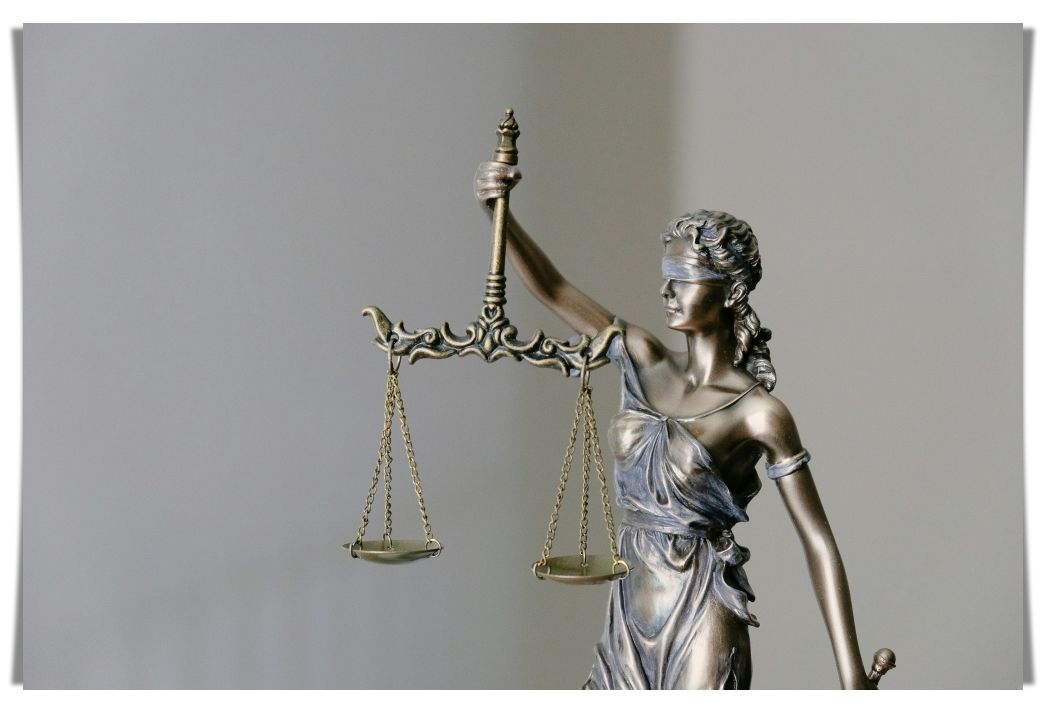The recent news of Rosmah Mansor's acquittal on 17 charges of money laundering and tax evasion sparked strong emotions and reflections. This issue extends beyond her as an individual; it raises significant questions about the state of our systems, the cracks within them, and our willingness to address these issues. I want to be clear: as an ordinary Malaysian, I am neither a legal expert, nor do I have a thorough understanding of the complexities of her case. However, given my observations of the world - the good, the bad, and the gray in between - I can't help but feel deeply uneasy about this outcome.

Rosmah Mansor and her legal team. Image source: Utusan Malaysia
For years, Rosmah's name has been associated with extravagance and controversy. She has come to represent a type of power that appears untouchable and above the rules that govern the rest of us. Significant allegations of money laundering and tax evasion against her felt like a rare moment of accountability. It's a reminder that no one was truly above the law. However, with her acquittal, that hope appears to have faded.
The System and Its Cracks
Justice involves how the public views courtroom fairness as well as court proceedings. The notion that everyone, from the cleaner to the spouse of a former prime minister, is subject to the same laws is essential to trust in any government. People naturally harbor doubts when high-profile personalities like Rosmah Mansor receive an acquittal. Was this decision just based on evidence, or did influence, connections, and power play a factor?
The lack of transparency makes the situation even more unpleasant. If there was insufficient evidence to convict, so be it. However, the authorities owe the public a clear explanation. Without that, the space is filled with guesswork, which rarely produces a flattering picture. Ordinary citizens, who diligently adhere to the rules and face financial hardships, question the fairness of the system.
Fighting Corruption or Just Talking About It?
Malaysia has faced multiple controversies, but there appeared to be a collective resolve to turn a corner. The global outrage over the 1MDB crisis sparked a national debate about responsibility and the need to hold even the most powerful people accountable for their conduct.
Rosmah's case felt like part of a broader effort. However, her acquittal has cast doubt on it. If the charges were baseless, the authorities must admit their mistake. However, dismissing the case for other reasons, even though it had validity, raises serious questions about the integrity of our systems. This verdict sets a precedent for all subsequent cases, influencing the actions of investigators, prosecutors, and ordinary citizens.

Musa Aman. Image source: Wikipedia
This isn't the only instance. Consider Musa Aman's recent appointment as Sabah's Head of State. Musa was previously charged with corruption involving timber concession contracts, but the accusations were dropped, and he has since ascended to the top role in the state. These parallels are startling. These verdicts extend beyond specific cases, conveying potent messages about Malaysia's justice system. How can the common citizen have confidence in the system when high-profile figures manage to avoid consequences?
Musa's return to prominence, despite the suspicions that surrounded him, appears to be another setback in the fight against corruption. It fosters the myth that powerful people follow a different set of standards, undermining the public's trust in accountability and governance.
Trust, or the Lack of It
One cannot demand trust; one must earn it and understand its inherent fragility. When decisions like these are made, they reinforce many people's greatest fears: that the powerful are protected by their standing, whereas the common citizen feels the full weight of the law.
This isn't just a political issue. It becomes personal. It impacts the taxpayer who faithfully meets their obligations year after year, as well as the parent who instills in their children the qualities of honesty and integrity. What do we tell them when they see results like this? Do we suggest that their efforts hold no significance? Is fairness an illusion?
What Happened to Due Process?
Due process is a fundamental component of justice. If the prosecution was unable to prove its case against Rosmah, her acquittal was the appropriate judgment. This is how the system should function. Due process requires both protecting the accused's rights and maintaining the system's credibility. Decisions must be based on evidence and facts, rather than on external influences or privileges.
If the case failed owing to procedural mistakes or a lack of evidence, the public has the right to know. Transparency is vital not only for resolution but also for avoiding similar problems in the future. Without clarity, we risk making the same mistakes.
Why It Matters

Image source: Unsplash
This isn't only about Rosmah Mansor or Musa Aman. It is about the type of society we want to develop. Do we want a system in which power protects people from accountability, or do we want a society in which the rules apply equally to everyone?
Right now, we appear to be at a crossroads. The public is closely monitoring the management of these situations by the authorities, the justification of rulings by the judiciary, and the narrative presented by the media. People are silently discussing whether they maintain their faith in the system or if it has irrevocably crumbled.
Moving Forward
If there is one thing to learn from this, it is that systems are unable to repair themselves. Change necessitates action. Transparency is essential for rebuilding confidence. Authorities must justify their judgments and accept responsibility for any failures. The public needs to see that the system works, even when it is messy and convoluted.
Furthermore, fighting corruption must continue to be a top focus. This includes safeguarding whistleblowers, holding investigators to high standards, and ensuring that no case, no matter how notable, is exempt from examination. It also entails teaching future generations that integrity is more than a virtue; it is a must for a functional society.
Final Thoughts
The decision to withdraw charges against Rosmah Mansor and the subsequent appointment of Musa Aman as Sabah Head of State are more than just legal or political occurrences; they reflect our values and priorities. These outcomes push us to consider challenging questions about justice, accountability, and the kind of nation we want to be.
I don't claim to be an expert on everything. However, I believe that justice must be more than just a notion; it must be a visible and credible reality. We must all work to salvage that belief, which seems shaky right now.
That's it for now. If you read this far, thank you. I appreciate it so much! Kindly give me a follow if you like my content. I mostly write about making art, life musing, and our mundane yet charming family life here in Klang Valley, Malaysia.
Note: All images used belong to me unless stated otherwise.
